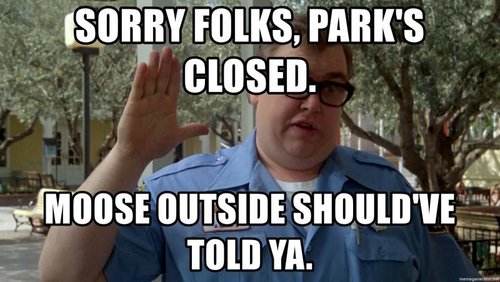windymtnman
Active member
- Joined
- Sep 17, 2014
- Messages
- 484
It's only June 12th, so don't panic just yet, however if you were planning on hunting some areas of Colorado this year, this could be a possible eventuality. (?)
I read numerous places, various press releases, wherein the entire 1.8 million acre San Juan National Forest has been placed under a Stage III Fire Alert. The release basically bans the public, and even some USFS employees from entering the forest. The release says the closure will remain in effect, until the moisture levels improve sufficiently enough to re-open or downgrade to a Stage Two level. Here
is a copied portion of that closure notice, as to the penalties:
"Violating Stage 3 fire restrictions or going into a closed area carries a mandatory appearance in federal court, and is punishable by a fine of up to $5,000 for an individual or $10,000 for an organization, or imprisonment of up to six months, or both".
The 416 Fire, as it's called, has been burning for a couple weeks, and there's been massive evacuations of residents nearing 1000 households. I live about 140 miles East of the fire, and we're getting smoke here from it daily. Our own Rio Grande National Forest, which is basically on the East side of the Continental Divide, is at a Stage Two alert level. I don't think it would take much to raise it to a Stage III as well, as we're in an extreme drought here.
I suppose there is some consideration by the USFS to the economic impacts of closing down forests, and yet the risk of burning up the resource as well as the massive costs of fighting fires probably is a higher priority.
If huge areas of Colorado were to be classified as a Stage III come hunting season, I wonder how CPW would manage this? If a solution was to allow some hunters to change their GMU's and tags, it would create an imbalance of hunting pressure, and perhaps an over harvest of game too? Outfitters would suffer as well. I suppose they'd just say it's tough luck all the way around, and better luck next year?
Too soon to say what's going to happen between now and hunting season, but this problem's out there, and needs to go away with some frequent, significant rainfall.
I read numerous places, various press releases, wherein the entire 1.8 million acre San Juan National Forest has been placed under a Stage III Fire Alert. The release basically bans the public, and even some USFS employees from entering the forest. The release says the closure will remain in effect, until the moisture levels improve sufficiently enough to re-open or downgrade to a Stage Two level. Here
is a copied portion of that closure notice, as to the penalties:
"Violating Stage 3 fire restrictions or going into a closed area carries a mandatory appearance in federal court, and is punishable by a fine of up to $5,000 for an individual or $10,000 for an organization, or imprisonment of up to six months, or both".
The 416 Fire, as it's called, has been burning for a couple weeks, and there's been massive evacuations of residents nearing 1000 households. I live about 140 miles East of the fire, and we're getting smoke here from it daily. Our own Rio Grande National Forest, which is basically on the East side of the Continental Divide, is at a Stage Two alert level. I don't think it would take much to raise it to a Stage III as well, as we're in an extreme drought here.
I suppose there is some consideration by the USFS to the economic impacts of closing down forests, and yet the risk of burning up the resource as well as the massive costs of fighting fires probably is a higher priority.
If huge areas of Colorado were to be classified as a Stage III come hunting season, I wonder how CPW would manage this? If a solution was to allow some hunters to change their GMU's and tags, it would create an imbalance of hunting pressure, and perhaps an over harvest of game too? Outfitters would suffer as well. I suppose they'd just say it's tough luck all the way around, and better luck next year?
Too soon to say what's going to happen between now and hunting season, but this problem's out there, and needs to go away with some frequent, significant rainfall.





